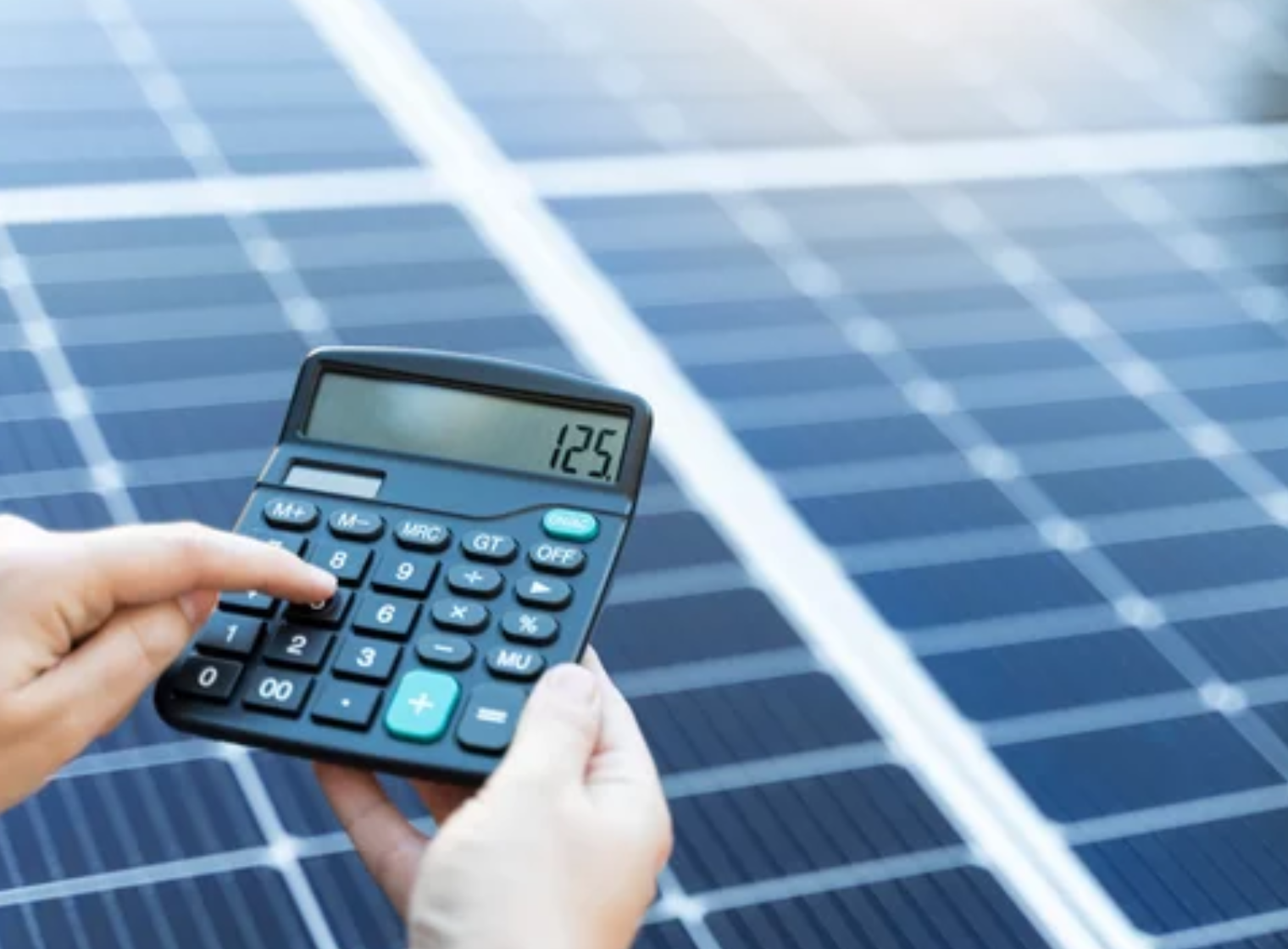Solar Savings
Power Your Home. Empower Your Future.
Solar energy isn’t just about savings—it’s about taking control of your energy costs, reducing reliance on the grid, and creating a more sustainable future. Discover how affordable and rewarding switching to solar can be.
Affordable Solar
for Every Home
We firmly believe that transitioning to solar energy should be budget-friendly. We are thrilled to provide homeowners with the opportunity to cut down on their utility expenses through our reasonably priced solar panel installation services. With the rising accessibility and cost effectiveness of solar energy, the time to switch is now. Let us help you harness the power of the sun and start saving on your energy costs today!

Affordable Solar
for Every Home
We firmly believe that transitioning to solar energy should be budget-friendly. We are thrilled to provide homeowners with the opportunity to cut down on their utility expenses through our reasonably priced solar panel installation services. With the rising accessibility and cost effectiveness of solar energy, the time to switch is now. Let us help you harness the power of the sun and start saving on your energy costs today!


No Upfront Costs,
No Stress
Solar energy is more affordable than ever. The vast majority of customers will have no out-of-pocket costs, removing the stress of high upfront installation bills. Over the past decade, the solar industry has undergone transformational changes, all of which benefit the homeowner and consumer. Still, choosing solar savings is an important and impactful decision. we pride ourselves on educating and empowering our clients; offering comprehensive resources and transparent responses to your questions.

No Upfront Costs,
No Stress
Solar energy is more affordable than ever. The vast majority of customers will have no out-of-pocket costs, removing the stress of high upfront installation bills. Over the past decade, the solar industry has undergone transformational changes, all of which benefit the homeowner and consumer. Still, choosing solar savings is an important and impactful decision. we pride ourselves on educating and empowering our clients; offering comprehensive resources and transparent responses to your questions.
Sustainable Savings That Last
The benefits of solar panels are not limited to lower utility bills, they also decrease reliance on the power grid. The ability to generate and use your own electricity during daylight hours reduces the need for power from another, fossil fuel driven, source. Solar panels save money and offer a viable, sustainable energy approach.

Sustainable Savings That Last
The benefits of solar panels are not limited to lower utility bills, they also decrease reliance on the power grid. The ability to generate and use your own electricity during daylight hours reduces the need for power from another, fossil fuel driven, source. Solar panels save money and offer a viable, sustainable energy approach.

Frequently Asked Questions
Explore Our Common Queries and Solutions
How much can I save by switching to solar?
Many solar users typically experience substantial savings throughout the lifespan of their solar system. The extent of these savings is contingent upon various factors, including the size of your solar setup, the sunlight exposure your residence receives, your utility company's electricity rate, participation in solar buyback and net metering programs, and the availability of incentives in your locality.
How long will my solar panels last?
Solar panels are engineered for long-term durability, with most manufacturers providing a 25-year warranty. However, these panels frequently maintain power generation capabilities even beyond this timeframe, albeit with a slight decrease in efficiency.
What if my roof doesn't have good sunlight exposure due to clouds?
Solar panels do not solely rely on direct sunlight for electricity generation; they can still produce power during cloudy or overcast days. Nonetheless, the electricity output is directly correlated with the sunlight received. Our team can assess your roof's exposure to determine its compatibility with solar energy.
Will I still have an electric bill after switching to solar?
Yes - If your system is connected to the grid, you'll continue to receive a bill from your utility provider. During periods when your system isn't generating energy, your home will draw electricity from the grid to fulfill its needs. If your system produces more power than you consume, the surplus will be sent back to the grid, potentially resulting in credits from the utility company and further reductions in your bill.
What is Net Metering and how does it work?
Net metering operates as a billing mechanism that compensates owners of solar energy systems for the electricity they contribute to the power grid. When your solar panels generate surplus electricity surpassing your consumption, this excess power is fed back into the grid, resulting in a credit applied to your utility bill. The extent of this credit is contingent upon the policies of your particular utility company.
What are the Federal Tax credits available?
The Solar Investment Tax Credit (ITC) is a federal tax incentive enabling homeowners to subtract a portion of their solar expenses from their tax liability. Utilizing this tax credit during the filing process can result in decreased or potentially eliminated tax obligations for homeowners. Notably, the ITC value has recently been increased from 26% to 30%, adding to the allure of transitioning to solar energy.
What does it cost to power an entire house?
Based on data from the Center for Sustainable Energy, the costs of residential solar panel systems can vary significantly. This calculation is based on a system capable of generating five kilowatt-hours of energy, with an average cost ranging from $3 to $5 per watt.
Several factors can influence whether your specific solar system falls on the higher or lower end of this scale, or even beyond. Firstly, the choice of solar panels can greatly impact the overall cost, considering variations in brand and power capacity. Additionally, it's crucial to recognize that solar incentives differ based on your location within the country.
Nationally, there's an opportunity to capitalize on the solar investment tax credit (ITC) if you act promptly. This incentive previously offered a 30% tax deduction for homeowners installing solar panels, but it reduced to 26% in 2020, further declining to 22% in 2021. Subsequently, the ITC is slated to expire.
Update: In August 2022, the solar tax credit was reinstated to 30% and extended through 2032.
On a state-by-state basis, diverse solar energy incentives exist. States like California provide generous rebates for homeowners adopting solar batteries, along with a net energy metering program and property/sales tax exemptions, aiding in cost reduction. Conversely, some states offer minimal or no solar incentives. For detailed information on incentives and rebates available in your state, refer to the Database of State Incentives for Renewables & Efficiency (DSIRE) website.
How many panels are needed to power an entire house?
Determining the specific requirements for a solar power system involves considering various factors. In general, the average homeowner typically needs approximately 30 solar panels to fully power a house. It's crucial to recognize that the precise power needs vary based on your location and the type of solar panels chosen.
According to the U.S. Energy Information Administration, the typical American residential customer consumes just under 11,000 kilowatt-hours annually. While certain regions receive more daily hours of direct sunlight on average, a solar system comprising 30 250-watt panels is generally sufficient to power the average American home.
However, this estimate can significantly fluctuate depending on your home's size, daily sun exposure, insulation quality, appliance efficiency, and other factors.
The wattage of your panels is another variable to consider. Contemporary solar panels can produce up to 400 watts, or even more. For instance, if you reside in a sun-rich area like Arizona and opt for 400W solar panels, powering your entire home could be achieved with approximately 20 panels.
When It Comes to Your Financial Future,
the Best Time to Act Is Now
Take the first step toward freedom.
Fill out the form below to speak with one of our experienced Case Counselors — absolutely free.
© 2026. Formula Financial. All rights reserved.
© 2026. Formula Financial. All rights reserved.
Privacy Policy
Terms of Use
